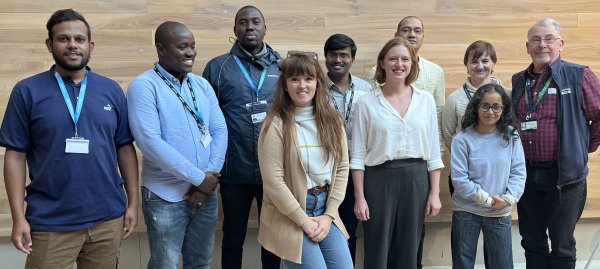IDDO welcomes researchers from India
It was great to welcome researchers Dr Vijayakumar Balakrishnan (ICMR-VCRC), Dr Hemant Mahajan (ICMR-RMRIMS) to IDDO to update on their work across malaria, visceral leishmaniasis, and filariasis.
IDDO is building a partnership with the Indian Council of Medical Research (ICMR) to exchange and share ideas with India’s scientific research community.

Dr Balakrishnan and Dr Hemant Mahajan were in the UK to attend a ‘mathematical modelling for the control of infectious diseases’ course, supported by the IDDO ICMR grant, and took time out to travel to Oxford and meet with IDDO colleagues.
Earlier this year the Indian government’s Union Cabinet, chaired by Prime Minister Shri Narendra Modi, approved a Memorandum of Understanding (MoU) between the Indian Council of Medical Research (ICMR) and the Infectious Diseases Data Observatory (IDDO), based at the University of Oxford.
The MoU will build a partnership both in and beyond data and skill-sharing and support capacity development with India’s scientific research community. It will ensure that data collection is compliant with international standards and regulatory requirements. Both ICMR and IDDO will exchange and share ideas on emerging infections and three vector-borne diseases in the elimination phase: malaria, visceral leishmaniasis, and filariasis.
Working together, both parties will support and develop best practices for data management, data documentation, data sharing and the development of equitable governance frameworks. The partnership will also explore opportunities for collaboration on research programmes and develop a three-year work plan on capacity strengthening, an exchange of research fellows, training on data management and statistical analysis.
Professor Philippe Guérin, Director of IDDO, said: “We are delighted to partner with the Indian Council of Medical Research and look forward to sharing expertise and strengthening our collaboration. Recent major public health events have shown just how effective shared knowledge and skills can be, and how crucial it is for the international scientific research community to continue to work together ever more closely. This partnership provides early career researchers with a fantastic opportunity to enhance their skills and improve treatment outcomes for affected communities.”
Find out more about the MoU here.
